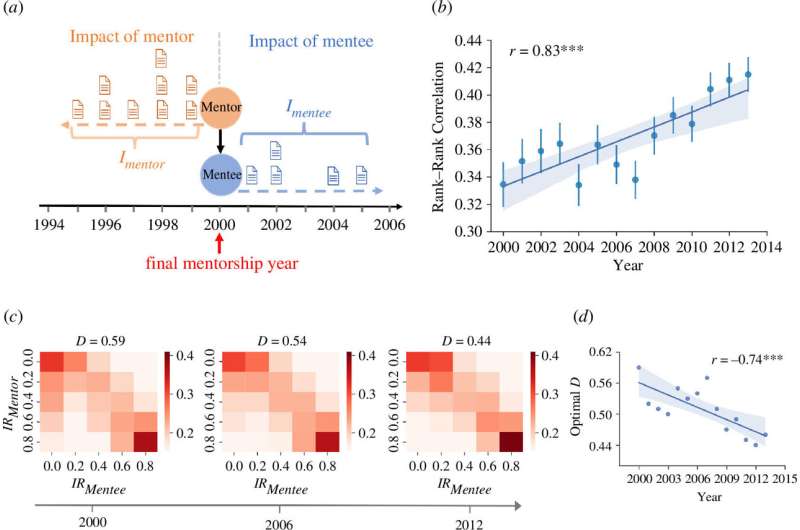
A research team from Southeast University in China, along with scholars from University College London and Queen Mary University of London, has uncovered an academic parallel to the Great Gatsby Curve within the field of science mentorship. This study reveals how the success of mentors can significantly influence the career achievements of their mentees.
Published in the Journal of the Royal Society Interface, the research delves into how the citation success of academic mentors correlates with the success of their mentees once they have launched their own careers. The study examined the citation histories of hundreds of thousands of scholars across 22 different academic disciplines, looking for patterns that link mentor success to mentee success.
The Great Gatsby Curve is a concept drawn from F. Scott Fitzgerald’s novel, illustrating how individuals from affluent backgrounds tend to achieve similar economic success in adulthood. The researchers found a comparable pattern in academia: mentees who worked under highly cited mentors generally enjoyed greater success in their own research careers. The key metric used to assess this success was the number of citations received by the mentees.
To investigate this phenomenon, the team analyzed extensive academic databases, focusing on 245,000 mentor-mentee pairs who worked together between 2000 and 2013. They found that mentees who had worked with highly cited mentors were more likely to achieve higher citation counts in their own work. This effect was particularly pronounced among graduate students compared to post-docs. Moreover, the study found that being affiliated with a prestigious institution could mitigate some of the negative impacts for mentees who had less prominent mentors.
The researchers also noted that mentorship appears to play a crucial role in shaping the career trajectory of young academics. By providing a network and a model of success, well-cited mentors can significantly boost the visibility and impact of their mentees’ work. These findings highlight the importance of mentorship in academic careers and suggest that institutions might consider strategies to enhance mentoring practices.

:max_bytes(150000):strip_icc():format(webp)/alec-baldwin-torino-film-festival-121824-3cf7cfbe5c4f4bcbb9197de4de062ea6.jpg?strip=all&resize=370,370)
:max_bytes(150000):strip_icc():format(webp)/Jimmy-Fallon-and-Prince-Harry-092624-baa1362d743d4f39a7d60bf57eb6e8b2.jpg?strip=all&resize=370,370)
:max_bytes(150000):strip_icc():format(webp)/randy-moss-121324-40b858c71b0f40bfa399e2fe00152b2a.jpg?strip=all&resize=370,370)
:max_bytes(150000):strip_icc():format(webp)/scandal-kerry-washington-121824-c51a2b5f0ef741268474bec2498c285a.jpg?strip=all&resize=370,370)
